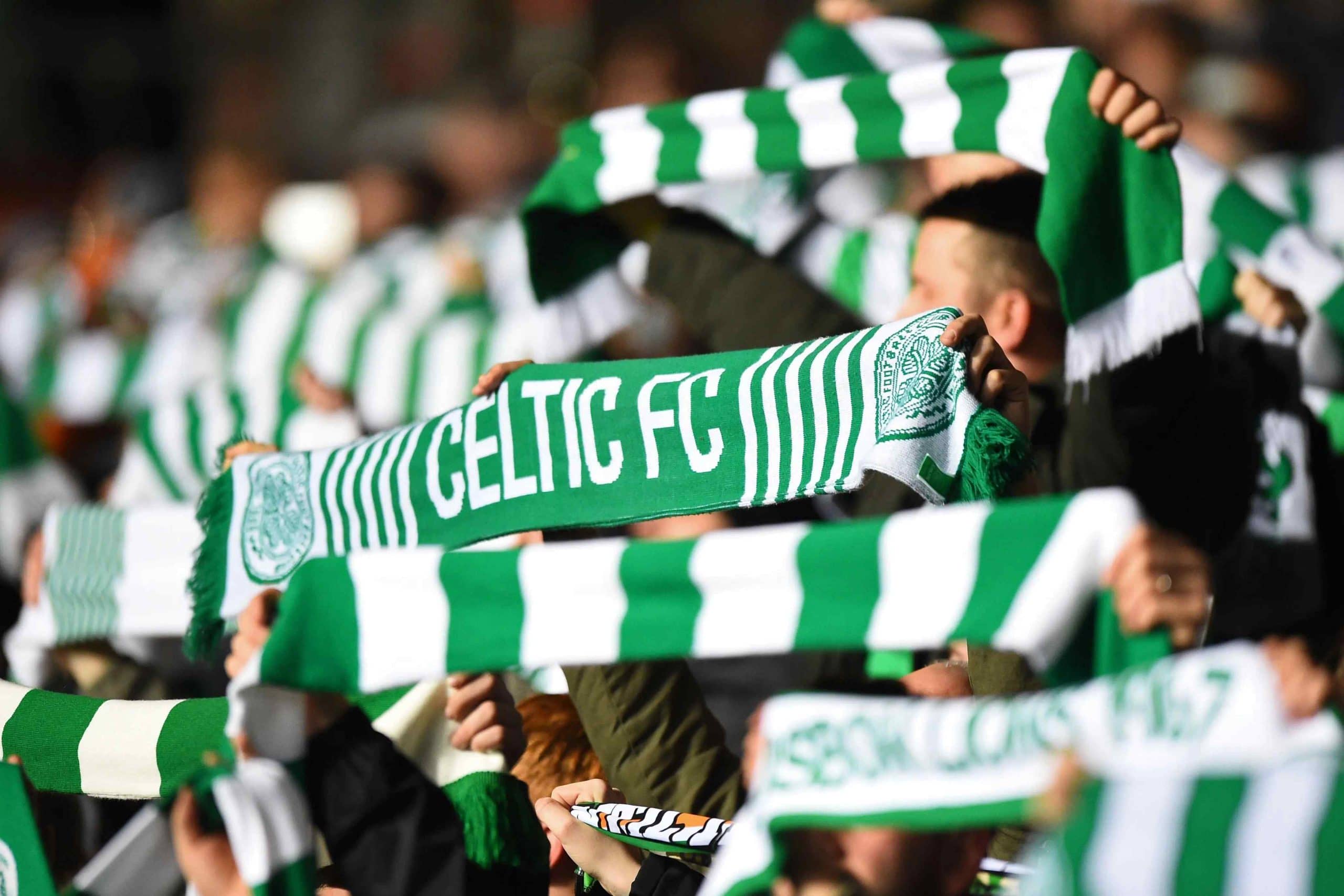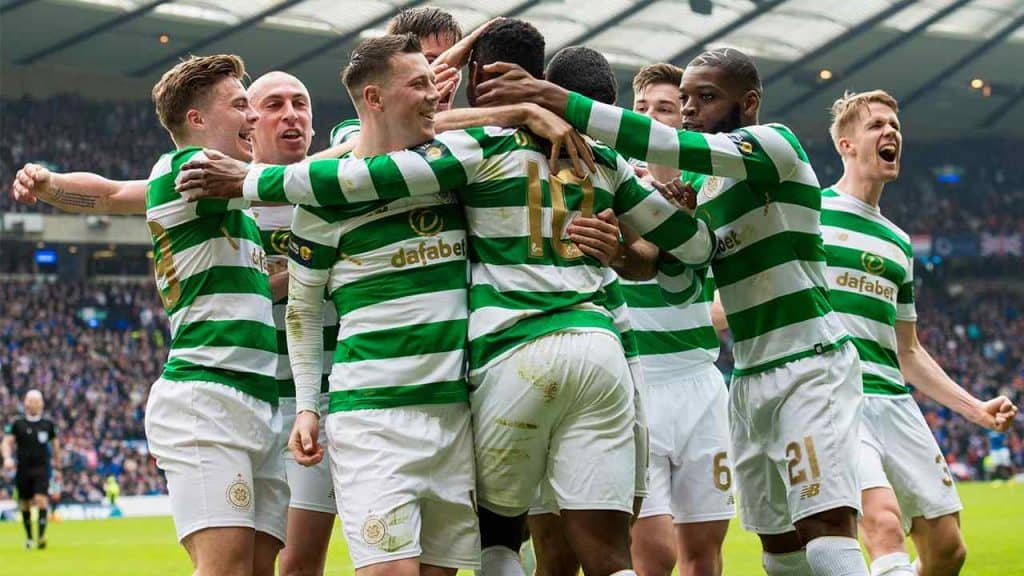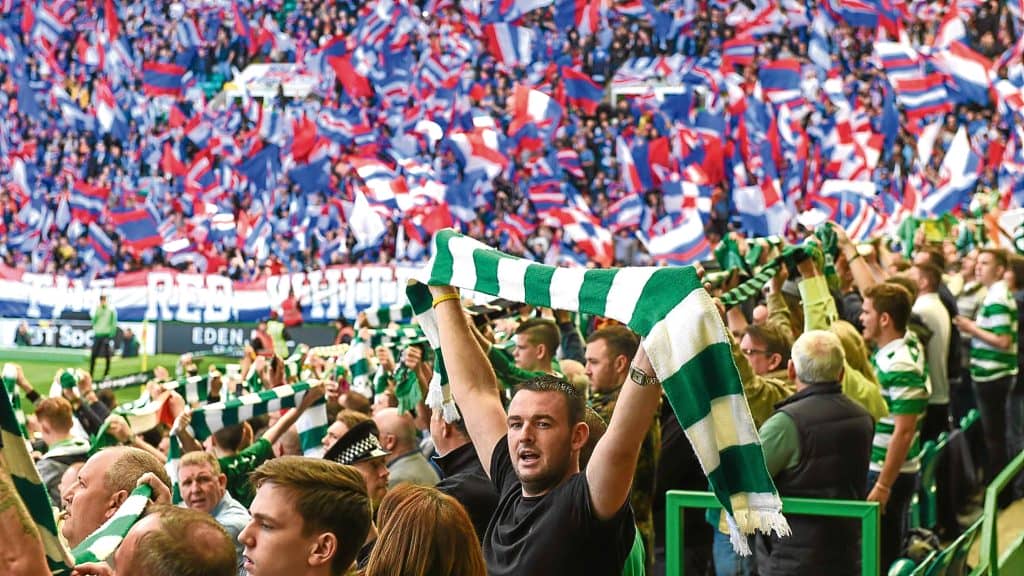
Celtic fans’ passionate dislike for the British monarchy runs deep. This sentiment stems from historical tensions between Ireland and Britain, with many Celtic supporters having Irish roots. The club’s strong Irish Catholic identity clashes with the monarchy’s Protestant connections.
Recent events have highlighted this animosity. During a minute’s applause for Queen Elizabeth II, some Celtic fans chanted anti-royal slogans and displayed banners criticizing the monarchy. This reaction reflects long-standing political and cultural divisions that continue to shape fan attitudes today.
Key Takeaways
Celtic FC’s roots run deep in Irish and Catholic culture. Founded in 1887 by an Irish Marist priest, the club aimed to help poor Irish immigrants in Glasgow. This strong connection to Ireland shapes Celtic’s identity and fanbase even today.
The rivalry between Celtic and Rangers goes beyond football. It touches on religious and political divides. Celtic fans often lean towards Irish Republicanism, while Rangers supporters tend to be Protestant and Unionist. This split fuels intense passions on both sides.
Some Celtic fans show anti-royalist feelings. During a minute’s applause for Queen Elizabeth II, Celtic supporters sang “If you hate the Royal Family, clap your hands.” They also displayed banners with the same message. These actions stem from the complex history between Ireland and Britain.

The Old Firm rivalry is one of the most heated in world football. It’s more than just a game – it’s a clash of cultures and beliefs. The matches often see tense atmospheres and passionate displays from both sets of fans.
Celtic’s fanbase is known for its unwavering loyalty. Supporters embrace their shared heritage and express it through chants, banners, and songs. This solidarity goes beyond the pitch, touching on broader social and political issues.
It’s important to note that not all Celtic fans share these views. Individual opinions vary, and many supporters focus solely on the sport. Understanding the historical context helps explain some fans’ attitudes, but it doesn’t define every Celtic supporter.
Celtic Fans’ Political Views
Celtic fans often hold strong political beliefs rooted in Irish nationalism and republicanism. This stance shapes their views on the royal family and British institutions. Many supporters see their opposition to the monarchy as a way to honor their cultural heritage and show solidarity with the Irish independence movement.
The club’s history plays a big role in these attitudes. Celtic FC was started by Irish immigrants in Glasgow to help their community. From the start, it had close ties to Irish culture and identity. This background fuels fans’ dislike of British rule in Ireland.
Fans express these views openly at games. They use banners, songs, and chants that criticize the monarchy or praise Irish historical figures. One chant refers to the IRA, a group that fought against British control in Northern Ireland. These displays show how deeply politics and soccer mix for many Celtic supporters.
The club and soccer officials have tried to limit controversial behavior at matches. But this has only made some fans more determined to voice their opinions. It’s a way for them to stand up for what they believe in.
Not all Celtic fans share these strong views. Many just love their team and don’t focus on politics. But for a vocal group, supporting Celtic is tied to their Irish roots and anti-monarchy feelings. This mix of sports and politics makes Celtic fans stand out in British soccer.
Piers Morgan, a well-known TV personality, has criticized Celtic fans for their actions during moments meant to honor the Queen. His comments highlight how these displays can stir up strong reactions from those who support the monarchy.
Historical Reasons for Dislike of the Royal Family
Celtic fans have a long history of opposing the British monarchy. This dislike stems from centuries of conflict between Ireland and Britain. The roots of this animosity go back to the 12th century when English kings began claiming control over Ireland.
The Tudor conquest in the 16th century under Elizabeth I led to harsh treatment of native Irish people. British rulers imposed Penal Laws in the 17th century that stripped Irish Catholics of basic rights. These laws banned Catholics from owning land, getting an education, or holding public office.
A major turning point was the Great Famine of 1845-1852. This devastating potato blight caused over a million deaths in Ireland. Many Irish people felt the British government’s response was too little, too late. The famine forced mass emigration, tearing families apart.
These events left deep scars on generations of Irish people. Many felt betrayed by British rulers who failed to protect them. Supporting Celtic FC became a way to show pride in Irish heritage. It also became an act of defiance against perceived British oppression.
For some Celtic fans, rejecting the monarchy is part of their identity. They see it as standing up for their Irish roots. Chants and banners at matches often express anti-royal sentiments. One popular chant goes: “If you hate the Royal Family, clap your hands.”

The image shows Celtic fans displaying a banner criticizing the monarchy. This reflects the deep-seated resentment some supporters feel. Their dislike goes beyond just the current royal family. It’s rooted in centuries of perceived injustice and oppression.
Celtic’s fanbase includes many people of Irish descent. For them, supporting the team is a way to honor their heritage. It’s also a chance to push back against British traditions they see as oppressive. This includes rejecting symbols of the monarchy like the crown and Buckingham Palace.
Even today, some Celtic fans see their support as a ongoing fight against past wrongs. They proudly wear their distaste for the monarchy as a badge of honor. For these supporters, Celtic FC represents more than just a soccer team. It’s a symbol of Irish identity and resistance against British rule.
Impact of ‘Huns’ on Players and Management
The term ‘Huns’ has deeply affected players and management in Scottish football. This nickname, used by Celtic fans for Rangers supporters, reflects the intense rivalry between the clubs. It creates a charged atmosphere that can be tough for players and staff to handle.
Rangers players face extra pressure on the pitch. They know that poor performances might lead to harsh criticism from their own fans. This stress can impact their game and mental health. Celtic players aren’t immune either. They often deal with high expectations to beat their rivals.
Managers at both clubs have a tricky job. They must motivate their teams while dealing with fan emotions. Celtic boss Ange Postecoglou, for example, has to balance team goals with fan sentiment. It’s not just about winning games, but also about understanding the club’s history and values.
The rivalry has led to disciplinary issues too. Both clubs have faced disciplinary proceedings due to fan behavior. This puts extra work on club management to control supporters and avoid penalties.
Safety is another big concern. Players and staff sometimes need extra security because of threats from rival fans. This shows how the ‘Huns’ label and related tensions can create real-world dangers.
How Many Hours Of Soccer Practice Should You Have A Day?
Detailed Examination of Celtic Fans’ Disdain for the Queen
Religious divides:
Celtic FC’s roots trace back to Irish Catholics who settled in Scotland in 1888. This history puts them at odds with Protestant clubs like Rangers, often seen as aligned with British institutions such as the monarchy. The rivalry goes beyond soccer, touching on deep-seated religious differences that have shaped Scottish society for generations.
Many Celtic fans see their club as a symbol of Irish Catholic identity in Scotland. This identity often clashes with the Protestant monarchy. The Queen, as head of the Church of England, represents a faith different from their own. This religious divide fuels some fans’ negative feelings towards the royal family.
Political affiliations:
A lot of Celtic supporters identify with Irish republicanism. They support a united Ireland free from British rule. The Queen and royal family are seen as symbols of British power over Ireland. This view stems from a long history of conflict between Ireland and Britain.
Celtic fans often display Irish flags and sing republican songs at matches. These actions show their political leanings. The club’s fan base includes many who feel strongly about Irish independence. For them, supporting Celtic is a way to express their political views.
The 2022 death of Queen Elizabeth II sparked controversy among Celtic fans. Some chanted anti-royal slogans during a minute’s applause meant to honor the late monarch. This incident shows how deep the political divide runs for many supporters.
Cultural identity:
For many Celtic fans, being anti-monarchy is part of their broader identity. They see themselves not just as soccer supporters, but as champions of social justice. This stance is rooted in their shared history and cultural background.
Celtic’s fanbase often embraces causes related to social equality and workers’ rights. These values can clash with what they see as the privilege and hierarchy of the royal family. Fans might view the monarchy as out of touch with everyday people’s struggles.
The club’s motto, “A club open to all,” reflects a belief in inclusivity. Some fans feel this spirit of openness doesn’t match with the exclusive nature of royalty. They might see the monarchy as a relic of a less equal past.
Celtic’s connection to Irish culture also plays a big role. Many fans celebrate Irish music, dance, and traditions. This cultural identity can feel at odds with British royal traditions. For these supporters, rejecting the monarchy is a way to affirm their own cultural heritage.
Some Celtic fans use soccer as a platform to express their views on larger issues. The stadium becomes a place where they can voice opinions on politics and society. This includes their feelings about the royal family.
It’s important to note that not all Celtic fans share these views. Opinions vary widely among the fanbase. Some supporters might respect the royal family or feel neutral about them. Others might separate their feelings about the monarchy from their love for the club.
The media plays a role in shaping how this issue is seen. Headlines often highlight the most extreme views, which can make the divide seem bigger than it is. It’s crucial to look at a range of sources to get a balanced view of Celtic fans’ attitudes.
In the end, the relationship between Celtic fans and the monarchy is complex. It’s shaped by history, politics, and culture. Understanding these factors helps explain why some supporters feel so strongly about this issue.
How Celtic Fans Express Their Dislike for the Queen and Royal Family
Celtic supporters have a long history of voicing their opposition to the British monarchy. During matches, fans often break out into anti-royal chants that echo through the stadium. A popular refrain heard at Celtic Park is “If you hate the royal family, clap your hands.”
The fans’ dissent extends beyond vocal protests. At games, banners with messages criticizing the monarchy frequently appear in the stands. These visual displays catch attention and spark debate among onlookers.
When moments of silence are held to honor royal figures, some Celtic fans choose not to participate. Instead of staying quiet, they might sing or chant during the designated period. This happened in September 2022, when fans sang through a minute’s applause meant to honor Queen Elizabeth II after her death.
Social media gives Celtic supporters another platform to air their views. Fans often post memes, comments, and images online that mock or criticize the royal family. These digital protests reach a wide audience beyond the stadium walls.
The roots of this anti-monarchy sentiment run deep. Many Celtic fans come from Irish Catholic backgrounds and feel a disconnect from British royalty. Historical tensions between Ireland and Britain play a role in shaping these attitudes.
Does this sentiment reflect all Celtic fans?
Celtic fans have diverse opinions about the Royal Family. While some supporters express strong anti-monarchy views, not all share these feelings. The vocal chants and banners seen at matches don’t represent every fan’s stance.
Many Celtic supporters simply enjoy the game without getting involved in political discussions. They cheer for their team and focus on the sport itself. Some fans might even appreciate British history and traditions while still backing Celtic FC.
Scotland’s complex history shapes different views among the fanbase. The Hoops’ supporters come from varied backgrounds, leading to a mix of beliefs about the monarchy.
It’s important to note that generalizing all Celtic fans as anti-royal isn’t accurate. Large groups always have a range of opinions. The actions of a vocal minority at games or online don’t speak for everyone.
Some Celtic supporters might feel neutral about the Royal Family. They don’t join in protest chants but also don’t actively support the monarchy. These fans prioritize their love for the club over political statements.
The Celtic community is made up of people with different ideas and values. While some strongly oppose the royals, others might be indifferent or even supportive. The diversity of thought among Celtic fans reflects the complexity of Scottish society as a whole.



